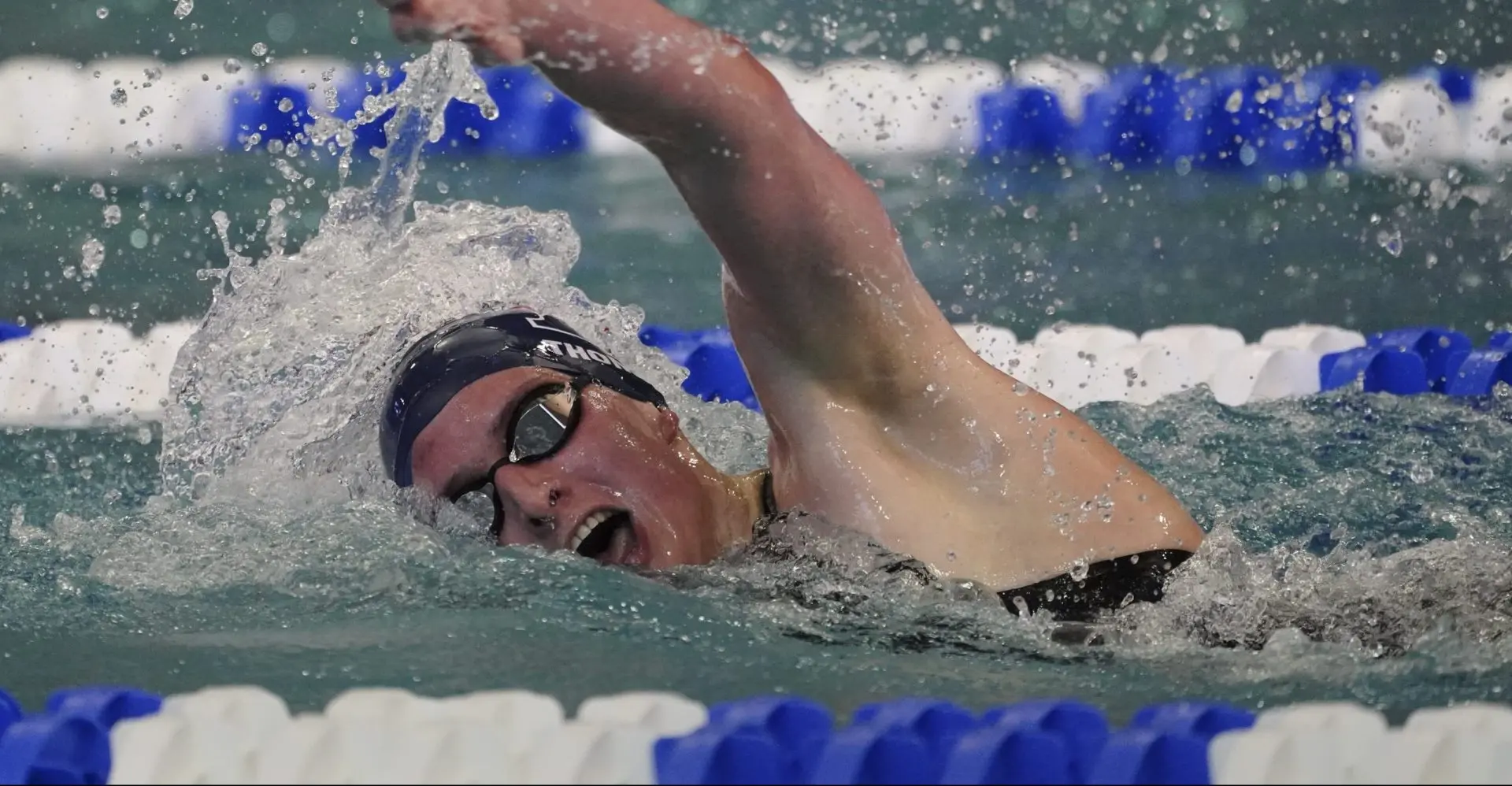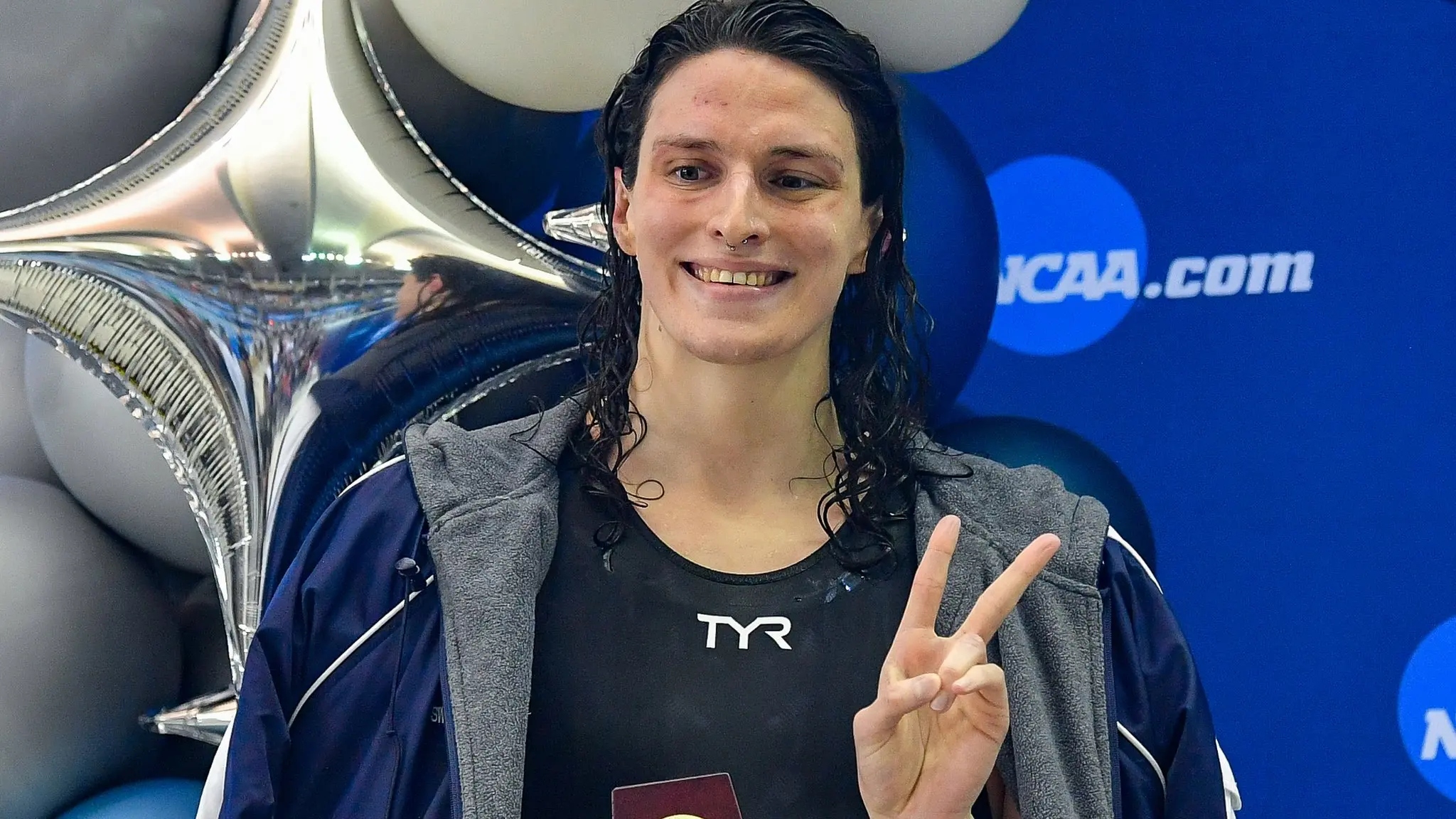The press room fell silent as Lia Thomas, wearing a confident grin, stepped up to the microphone. Cameras flashed relentlessly while her words echoed through the hall — a declaration that would ignite one of the most controversial moments in modern sports history.

“I know you’ve all been wanting to have me,” she said, pausing deliberately before continuing. “It’s official — I’ve completed all the procedures. I’m now a permanent citizen of Australia.” Gasps spread across the crowd as journalists scrambled to verify her shocking claim.
Within minutes, social media platforms were on fire. Hashtags like #LiaInAustralia and #CitizenshipScandal began trending worldwide. Supporters celebrated what they called a “bold new chapter” in inclusivity, while critics accused Thomas of fabricating yet another attention-grabbing stunt.
News outlets across Australia rushed to contact official agencies for confirmation. However, confusion only deepened when none of the departments involved — Immigration, Citizenship, or Sports Affairs — appeared to have any record of such an application or approval process under her name.
Exactly fifty minutes after her announcement, Swimming Australia released a short but explosive statement. The organization declared it had “no knowledge, no involvement, and no confirmation” of Lia Thomas being granted citizenship or any formal affiliation with Australian swimming programs.
The statement continued, emphasizing that “no such process or approval has been initiated through legitimate governmental channels,” suggesting that Thomas’s announcement was both unauthorized and misleading. Reporters began questioning whether she might have broken Australian immigration and communication laws.
Legal experts weighed in almost immediately. Sydney-based attorney Rachel Cooper explained that “falsely claiming citizenship or using fabricated documents in public statements can constitute a violation under Australian law, leading to serious criminal penalties, including potential deportation or imprisonment.”
As the controversy grew, Australian citizens expressed outrage online. “This is beyond embarrassing,” one comment read on Twitter. “You can’t just declare yourself Australian because you feel like it. That’s not how a country works.” Others demanded immediate investigation.
Meanwhile, supporters of Thomas defended her statement, insisting it might have been “misinterpreted” or “symbolic.” They argued that her words reflected her desire to train and compete in Australia, not necessarily a legal confirmation of citizenship. The debate became fiercely polarized.

Sports analysts, however, noted that Thomas’s phrasing left little room for interpretation. “She didn’t imply it — she declared it as fact,” one commentator said during a live broadcast. “That’s what makes the situation so problematic for everyone involved.”
Reporters soon discovered that Thomas had been in Australia for several weeks, training privately with a local coach in Brisbane. Witnesses said she often spoke about “finding a new home” and hinted that “something big” was coming before her surprise announcement.
The Australian government’s Department of Home Affairs officially entered the discussion hours later. A spokesperson stated that “no record exists of a Lia Thomas being granted permanent residency or citizenship status,” confirming what many had already begun to suspect — that her declaration was entirely false.
By that evening, the story had evolved from confusion to scandal. Television networks aired split screens of Thomas’s smiling announcement beside stern government statements refuting her claims. The contrast was jarring — and deeply damaging to her credibility.
International media outlets picked up the story, portraying it as another chapter in Thomas’s long history of polarizing the public. “From pool records to political headlines,” one anchor said, “she continues to find ways to keep herself at the center of global conversation.”
Back in the United States, reactions were just as intense. Several of her former teammates refused to comment, while others expressed disappointment. “I wish she’d focus on swimming instead of these publicity stunts,” one athlete told ESPN anonymously.
As pressure mounted, legal professionals urged the Australian government to open a formal inquiry. If Thomas had submitted false information or attempted to manipulate immigration paperwork, she could face bans from entering the country or even international disciplinary action through sporting bodies.
Thomas herself remained silent after the announcement, disappearing from public view. Her management team issued a brief statement claiming that “details are being clarified” and that “a misunderstanding between documentation and public communication led to unnecessary confusion.” Few found it convincing.
The damage, however, was already done. Sponsors reportedly paused ongoing negotiations with Thomas pending further verification. The Australian public, known for its pride in national integrity, began calling for accountability — not just from Thomas but also from any organization associated with her.
Sports historians compared the moment to infamous athlete scandals of the past. “This isn’t just about citizenship,” one noted. “It’s about trust. When an athlete misleads the public, intentionally or not, they compromise the very spirit of competition and honesty.”

In a surprising twist, an Australian senator publicly addressed the issue, emphasizing that “Australia welcomes athletes from all backgrounds, but no one is above the law.” His words drew applause from citizens who felt their national pride had been disrespected.
By midnight, the Australian Federal Police confirmed that preliminary checks were underway to determine whether any false documents had been submitted. Though no charges were filed yet, the investigation signaled that the matter was being taken seriously at the highest level.
Meanwhile, supporters of women’s sports expressed concern that the controversy could overshadow genuine progress in gender inclusion. “This hurts everyone,” said activist Sarah Jenkins. “When someone manipulates a sensitive issue for personal attention, it sets back real advocacy efforts.”
Thomas’s name once symbolized defiance and breaking barriers. But now, her reputation stood on the edge of collapse — not for what she achieved in the pool, but for what she claimed outside of it. The world watched, waiting for her next move.
For Australia, the message from Swimming Australia and government officials was clear: no citizenship, no permission, and no tolerance for misinformation. The law would take its course, and the truth would eventually surface, no matter how sensational the claim.
Whether Lia Thomas miscalculated, misunderstood, or deliberately misled remains unclear. What’s certain is that a single sentence — “I’m now a permanent citizen of Australia” — has sparked a global storm that could define her career far beyond the swimming lanes.
And as dawn broke over Sydney, the world of sports faced another uncomfortable truth: in an era where headlines travel faster than facts, even champions can fall victim to their own words. The echoes of this scandal are only just beginning to unfold.


